
The democracy activist boycotting the upcoming Polish referendums
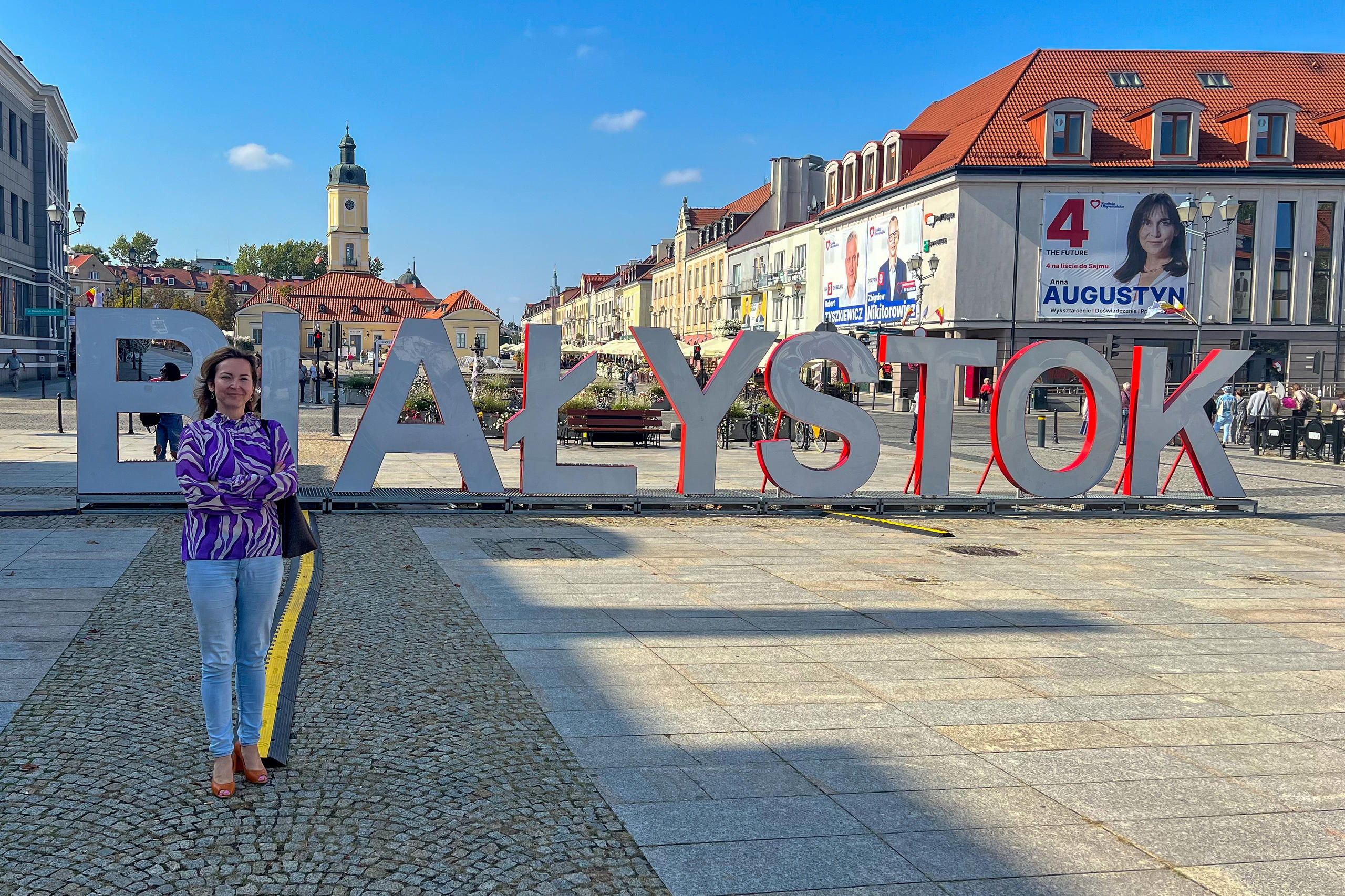
On October 15, for the first time, the Polish people will vote simultaneously on four bills. But the director of the Centre for Direct Democracy Studies in Bialystok, an expert in Swiss politics, will not be taking part.
Overnight, an almost four-metre-high mobile alarm clock was brought to Rynek Kościuszki, Bialystok’s market square. A digital display shows the days, hours, minutes and seconds until the polls close in Poland. A written warning on the installation reads: “Nie śpij, bo cię przegłosują” (“Don’t sleep, or others will decide for you”).
“Our municipal authorities are seeking to motivate citizens to participate with this campaign. We’re facing a very important election for democracy in Poland,” says Elzbieta Kuzelewska, a law professor, looking anxiously at the huge posters with portraits of candidates for the province of Podlaskie hung on the fronts of houses all around.
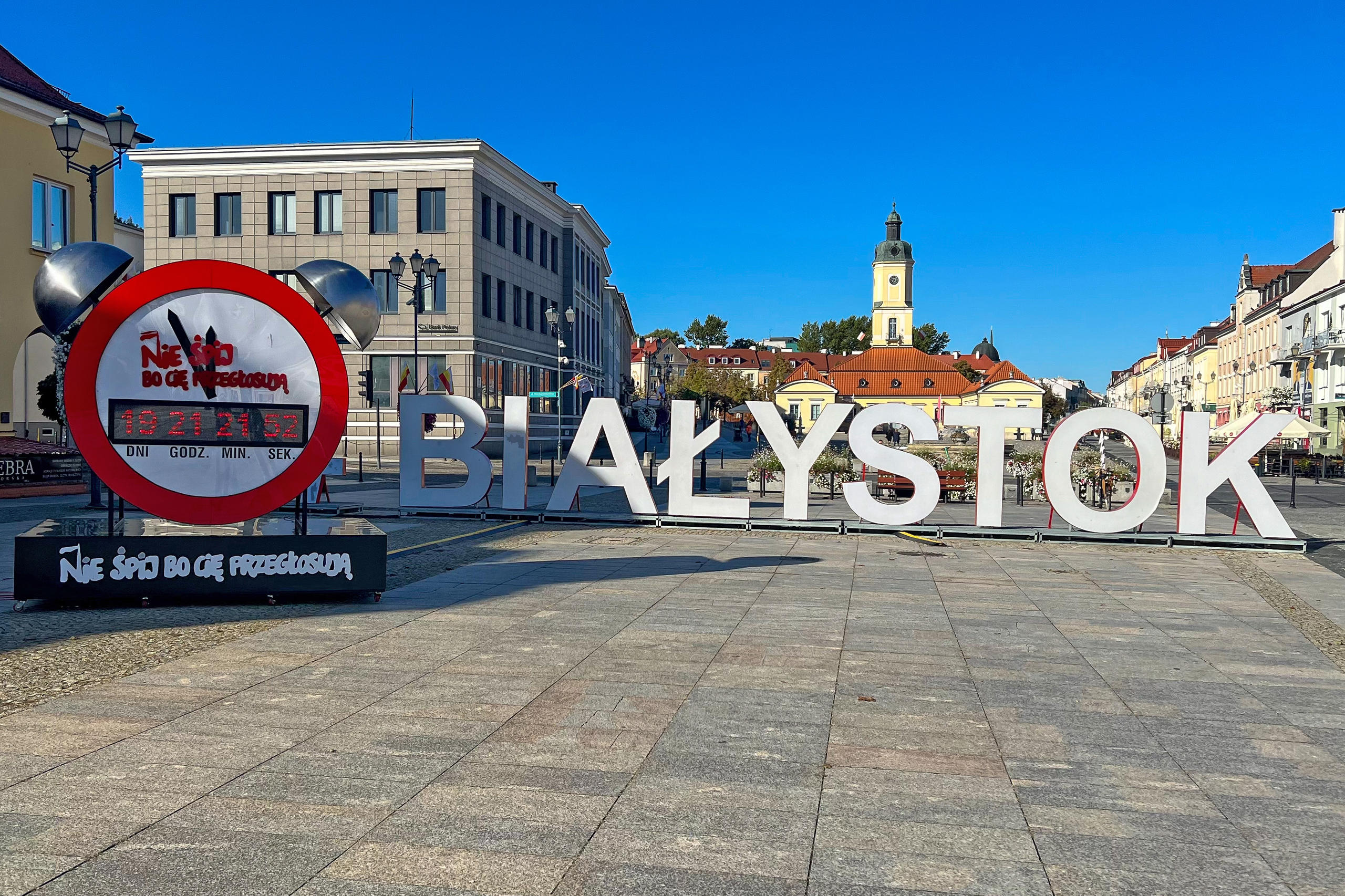
This northeastern Polish province, called a voivodeship, borders Belarus, Lithuania and the Russian exclave of Kaliningrad. But there are also issues at stake that affect the entire nation. Four referendums are about to take place.
- “Do you support the selling off of state assets to foreign entities, leading to the loss of Poles’ control over strategic sectors of the economy?”
- “Do you support an increase in the retirement age, including the restoration of the increased retirement age to 67 for men and women?”
- “Do you support the removal of the barrier on the border between the Republic of Poland and the Republic of Belarus?”
- “Do you support the admission of thousands of illegal immigrants from the Middle East and Africa, in accordance with the forced relocation mechanism imposed by the European bureaucracy?”
Kuzelewska was born here, in the very east of present-day Poland, into a Polish Orthodox family. She soon became aware she was growing up in a special part of a country where, elsewhere, Roman Catholics are heavily dominant. “Our neighbours included Tatar Muslims, Lithuanian Jews and Belarusian Orthodox,” she says.
In Poland’s dramatic history, ethnic groups have been repeatedly oppressed, deported and murdered. Today, Bialystok’s Sybir Memorial Museum, which opened in 2021, bears witness to this. It is housed in the former Poleski railway station, from where tens of thousands of people were deported to the Soviet gulags in the east and to the Nazi concentration camps in the west during the Second World War.
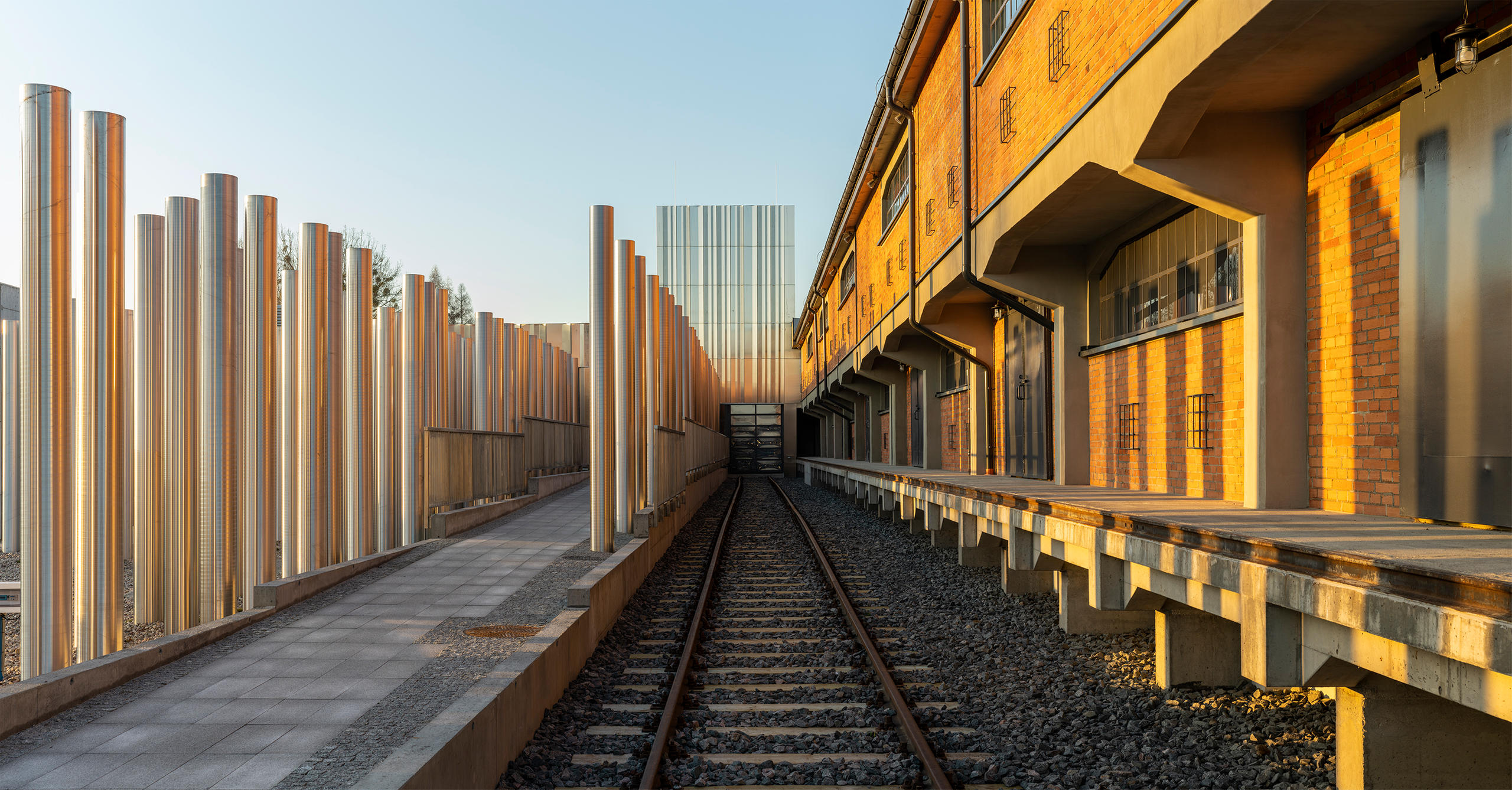
As a young law student, Kuzelewska took an interest in legal frameworks for the peaceful and democratic coexistence of different cultures and peoples. On a first hitchhiking trip west with her then boyfriend (and now husband) Dariusz, she made a discovery that changed her life. “In southern Poland, a young man gave us a lift on a country road and explained that he was going to Switzerland for a few weeks, and he asked if we’d like to come along. We saw the Matterhorn and beautiful mountain lakes, but also posters for referendums, and we heard about the Landsgemeinden,” she says, referring to open-air assemblies.
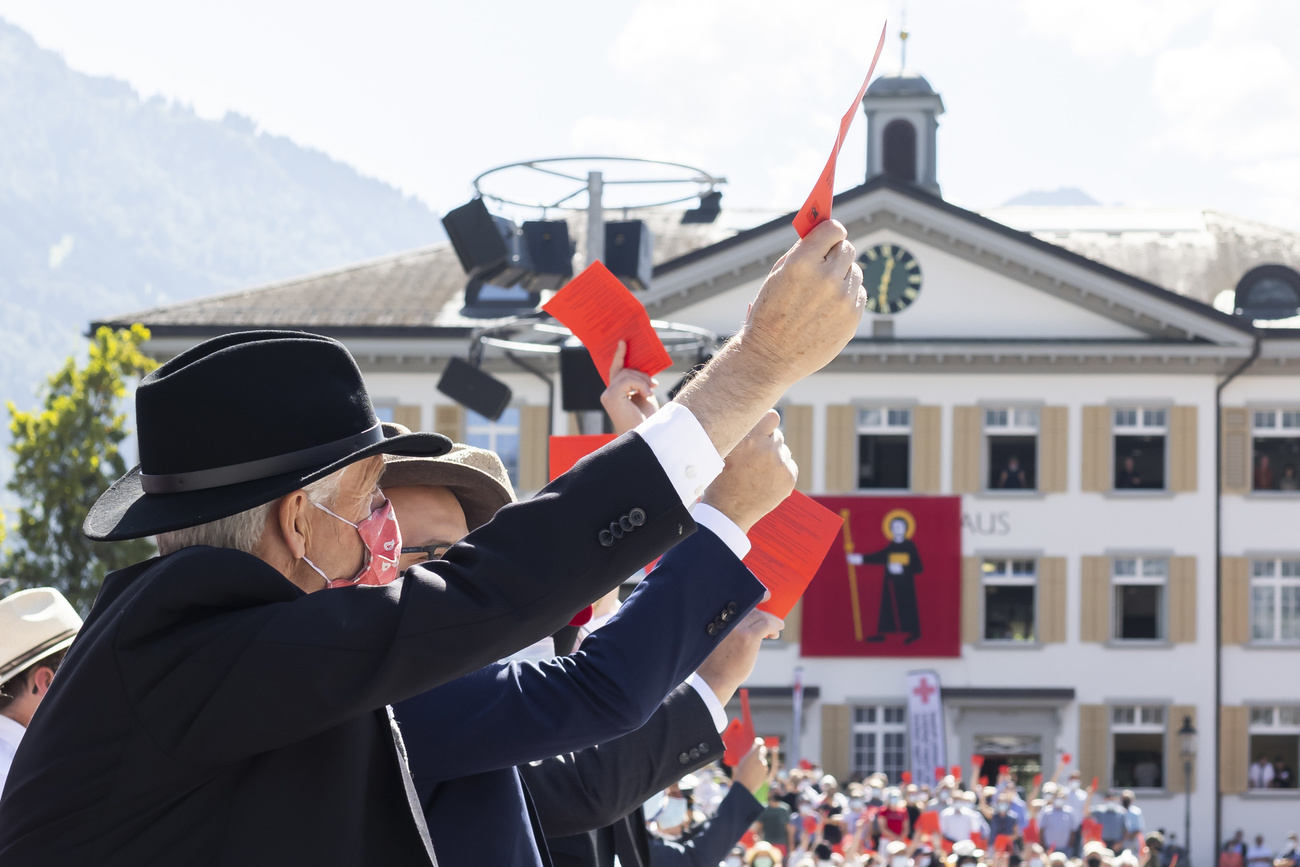
More
Swiss traditional open-air voting resumes after pandemic hiatus
Switzerland as inspiration
Back in eastern Poland, these impressions stayed with Kuzelewska. She began to read up on the Swiss political system, wrote a master’s thesis on civic rights in Switzerland and finally completed a doctorate on the subject of direct democracy in Europe.
Today she is the vice dean of the law faculty. She has led the Centre for Direct Democracy Studies at the University of Bialystok for ten years. In addition, she is a founding member of a network called Inicjatywa HelweckaExternal link (Helvetic Initiative), which is active throughout Poland.
“With this initiative, we want to contribute our experience of Switzerland to democratic development in Poland,” Kuzelewska says. She has visited Switzerland professionally and privately many times over the past 30 years. While she describes the popular initiatives and referendums in Switzerland as examples for the world, the cantonal assembly in Glarus left a less favourable impression during a recent visit. “I see this form of direct democracy with assemblies as primarily folkloric in nature,” she says.
Strategic use of direct democracy
In the final days before the tenth parliamentary elections since the fall of Communism in 1989, Poland is once again divided over the value of direct democratic procedures. “These referendums do not serve to strengthen democracy,” Kuzelewska says. She says she won’t participate for that reason and will cast her ballots only for the lower house, the Sejm, and the upper house, the Senate.

More
We want to hear your democracy stories
Her scepticism stems from the fact that the unique combination of elections and ballots has a strategic character. By scheduling four votes at short notice on the hot button issues of refugees, border fences and the retirement age, the ruling nationalist-conservative Law and Justice party is trying to mobilise its own electorate.
The referendum questions are tailored to Law and Justice party supporters. For example, they ask whether voters support “selling off state assets to foreign entities,” which leads to “Poles losing control over strategic sectors of the economy” or whether they support “the admission of thousands of illegal immigrants from the Middle East and Africa” as demanded by “European bureaucracy”.
Holding referendums and elections simultaneously also casts doubt on the secrecy of the ballot, because the referendum responses have to be handed in separately from the election ballots. Anyone who does not hand in referendum responses is therefore exposed as a critic of the government.
Meanwhile, as Kuzelewska’s colleague at the Centre for Direct Democracy Studies Andrzej Jackiewicz points out, the party is “circumventing a whole series of electoral laws”. The Polish parliament decided by a narrow majority in July to submit four referendum questions to the electorate at the same time as the October 15 elections – contravening a provision in the Polish constitution prohibiting the amendment of electoral laws less than six months before elections.
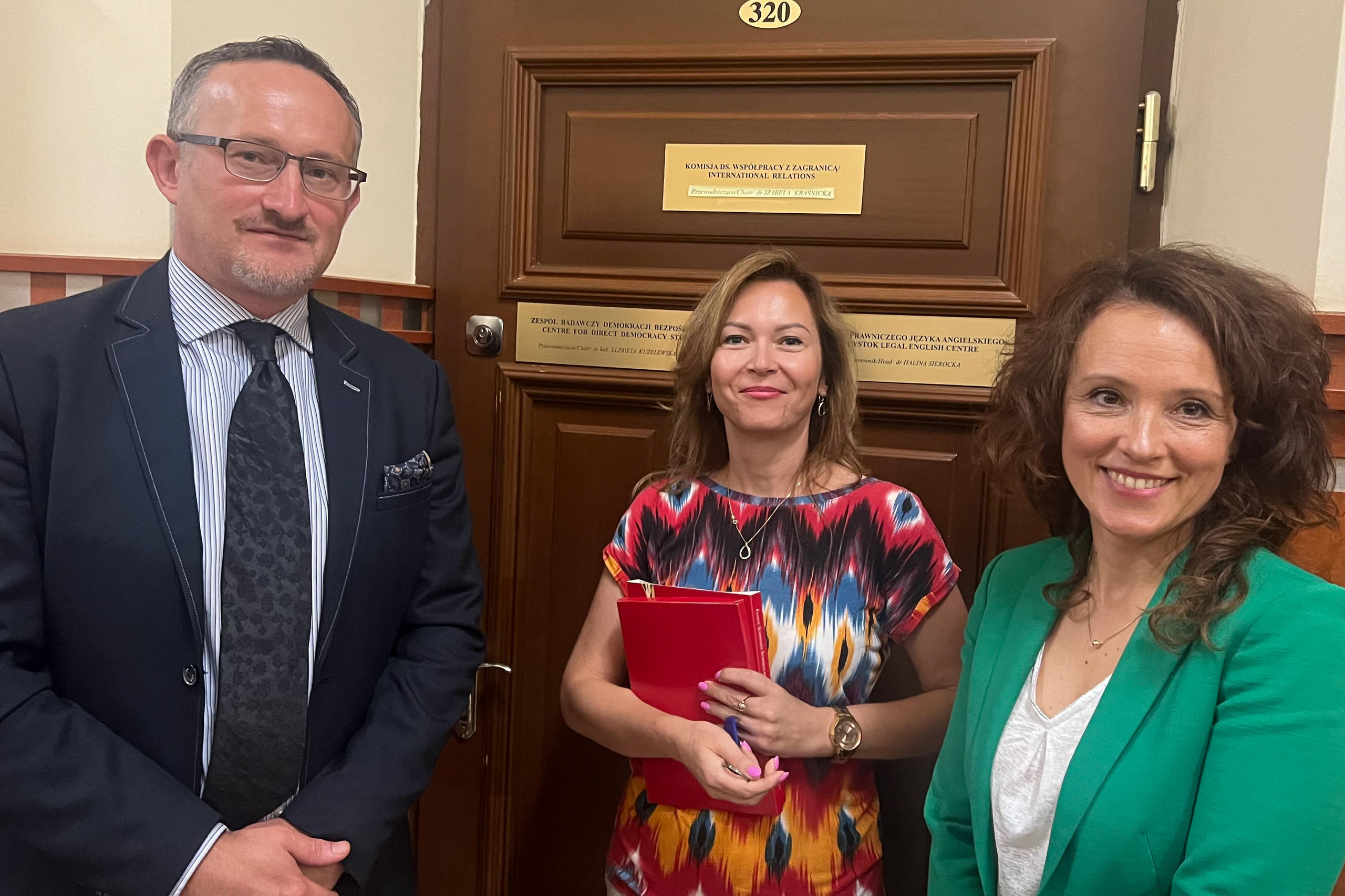
In a recently published analysis, Jackiewicz makes clear that the government majority amended “no fewer than 170 provisions of the electoral law” in the months leading up to the election. They are all designed to strengthen the government’s chances at the expense of the opposition parties. As examples, Jackiewicz cites the limited number of polling stations for expatriate Poles, the majority of whom traditionally vote liberally.
The direction the government is taking is meeting with growing resistance, especially among Poland’s urban population. At the beginning of October, more than a million people demonstrated against it across the country. How many of them share Kuzelewska’s concerns about democracy in Poland will become clear on October 15.
Polish citizens approved the country’s current constitution in 1997. Since then they have voted on concrete policies four times. Only once – for the question of European Union membership in 2003 – was a turnout rate of over 50% (necessary for a valid result) reached. At that time, 78% approved EU accession, with a turnout of 59%.
Twelve years later, former Polish president Bronislaw Komorowski held a referendum, for tactical reasons, involving three politically motivated questions (on party financing, majority voting and tax amnesty). The gambit failed miserably when less than 8% of voters participated. Direct democracy is more successful at the local level: every year around 100 votes take place in municipalities and provinces.
Edited by David Eugster. Translated from German by Catherine Hickley

In compliance with the JTI standards
More: SWI swissinfo.ch certified by the Journalism Trust Initiative































You can find an overview of ongoing debates with our journalists here . Please join us!
If you want to start a conversation about a topic raised in this article or want to report factual errors, email us at english@swissinfo.ch.